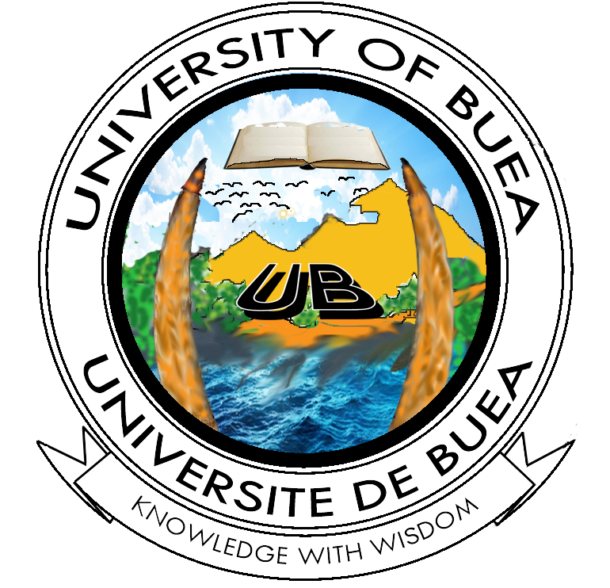Duration: 3 years
Fee Paying: No
Admission Requirements
At least 2 G.C.E. Advanced level passes one in Biology, Botany, Zoology or Human Biology.
Objectives
The Microbiology programme aims at producing scientific and technological manpower necessary for achieving national goals. The objectives of the programme are:
- To produce microbiologists who have a strong background in general microbiology.
- To provide theoretical and practical training aimed at enabling students acquire microbiological knowledge and techniques necessary for industries such as breweries, food processing and preservation, water works, pharmaceuticals and research institutes.
- To train students, where appropriate to acquire the knowledge necessary for health care delivery especially in pathological and immunological laboratories and to monitor environmental pollution.
- To provide courses in Microbiology to students of other Departments and other Faculties where degree options require some knowledge of the areas listed in (ii) and (iii) above.
Graduation Requirements
The number of course credits required for the award of a BSc degree in Microbiology shall be 180 credits including the general university requirements. The student is expected to take either a professional minor (to be chosen between a minor in Medical laboratory Technology and Diagnosis of infectious Diseases) or a minor in Parasitology.
Skills Acquired
Students graduating with a degree in Microbiology acquire the following skills during their training:
- Various techniques (cultural, immunological and molecular) involved in the diagnosis of infections, detection of hazardous as well as desirable microorganisms in food.
- Techniques involved in pollution abatement, environmental monitoring and water treatment
- Harness the activities of micro organisms in food fermentations to obtain desirable products.
Employment Opportunities
A graduate with a degree in Microbiology may engage in teaching; work in the paramedical field (Laboratory technologist) or take up industrial based positions in the petroleum, food processing and beer and wine manufacturing industries. A graduate may also get into research or further his/her education to postgraduate levels.
Courses
Compulsory Courses
- BCH202: Biophysical Chemistry and Bioenergetics
- BCH301: Structural Biochemistry I
- BCH302: Metabolic Biochemistry I
- BCH303: Structural Biochemistry II
- BCH310: Genetics
- BCH401: Enzymology
- BCH404: Molecular Biology
- BCH405: Metabolic Biochemistry II
- BCH412: Introduction to Biotechnology and Bioinformatics
- BIO201: Cell biology
- BIO401: Biometry and Research methods
- CHM201: General Chemistry
- CHM244: General Organic Chemistry
- CHM343: Chemistry of Organic Compounds
- MAT211: Mathematical Methods
- MCB301: General Microbiology
- MCB402: Immunology
- PHY220: GeneralPHYsics
Elective Courses
- BCH311: Tissue and Organ Biochemistry
- BCH312: Nutritional Biochemistry
- BCH409: Supra-Molecular Assembles
- BCH410: Biochemical Methods II
- BCH414: Biochemical Pharmacology
- BCH416: Clinical Chemistry
- BCH498: Research Project in Biochemistry
- BIO301: General Ecology and Conservation
- BOT201: Lower Plants
- BOT202: Higher Plants
- BOT308: Principles of Taxonomy andPHYtography
- BOT401: Plant Anatomy and Histology
- BOT412: Principles and Methods in PlantPHYsiology
- CHM312: Analytical Methods in Chemistry
- CHM325: Inorganic Chemistry
- CHM402: Chemistry and the Environment
- CHM438: Chemical Thermodynamics
- CHM441: Organic Synthesis and Reaction Mechanisms
- MLT201: Human Biology - Anatomy and physiology
- MLT202: Human Pathology
- MLT301: Haematology
- MLT302: Endocrinology
- MLT401: Clinical Biochemistry and Analytical Chemistry
- MLT402: Basic Pharmacology and Pharmacological Biochemistry
- ZOO201: Invertebrate Zoology
- ZOO202: Vertebrate Zoology
- ZOO302: AnimalPHYsiology
- ZOO402: Animal Behaviour and Evolution
- ZOO405: General Parasitology
Language Requirements
- ENG101: Use of English I
- ENG102: Use of English II
- FRE101: Functional French I
- FRE102: Functional French II


